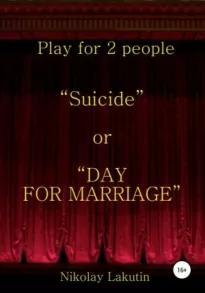Позитивные изменения. Том 3, № 3 (2023). Positive changes. Volume 3, Issue 3 (2023)

- Автор: Редакция журнала «Позитивные изменения»
- Жанр: Научная литература / Газеты и журналы
- Дата выхода: 2023
Читать книгу "Позитивные изменения. Том 3, № 3 (2023). Positive changes. Volume 3, Issue 3 (2023)"
A TALE OF MUTUAL BENEFIT
All participants stand to gain from service learning: for students, this form of project-based engagement within their education motivates them to actively participate in the fabric of society. Not only does it help in building a positive image of the modern young citizen, but it also tangibly factors the results of such endeavors into their coursework and thesis projects. Universities, too, benefit from the implementation of this technology, as it promotes civic, personal, and professional development among students, enhances their academic performance, significantly elevates the social atmosphere within the institution, and transforms it into a vibrant hub within the local community, thereby improving its image. Social organizations, meanwhile, find that implementing service learning and collaborating with universities allows them to tap into a talent pool that universities build. This partnership offers resources ranging from essential research and tangible support to manpower.
It’s imperative, highlights Elena Isaeva, that the interaction strategy proves advantageous for both sides. “For the non-profit sector, this entails securing a large, reliable partner with a strong reputation and pursuing further joint projects in line with the university’s third mission. Universities, on the other hand, are keen on developing volunteering initiatives, enriching students’ extracurricular activities and the university’s event roster. This makes the university a consistent attendee at NGO fairs, civic forums, or hosting NGO events on campus — fostering meaningful involvement of both students and staff in socially significant activities and expanding their horizons.”
Artem Shadrin, Director of the Institute of Socio-Economic Design at the National Research University Higher School of Economics, perceives service learning as an intriguing narrative illustrating the real-world demand for applied project-based learning in implementing socially-focused projects. This approach empowers students to cultivate their hard and soft skills while motivating them with impactful, socially relevant outcomes stemming from their projects.[60] Non-profit organizations, on their part, derive substantial added value from partnerships with universities.
He emphasizes that the service learning format — where universities can genuinely support NGOs — facilitates networking, deepens relationships, and shapes a broader collaborative agenda. For universities adhering to the principles of project-based learning, it is imperative to offer engaging, motivating, and enriching tasks that foster professional growth. NGO leaders and staff members, frequently enthusiastic and charismatic individuals, provide an enriching experience for students, which is an added asset for universities, enabling them to attract top-notch candidates.
“In essence, this narrative centers on mutual benefit, making the task of nurturing such collaborations all the more relevant,” Shadrin elaborates.
“Interestingly, project-based learning has a strong history in our country’s engineering field. During the era of planned economies, engineering students would engage in real, functional projects as part of their education. Today, this approach to applied project-based learning is expanding into the realms of social sciences and humanities.”
Thus, over the past few years, more than a hundred universities across the country have adopted the format of legal clinics, where law students offer pro bono legal advice to citizens in need of legal guidance. At Saint Petersburg State University, besides legal clinics, there are 15 other clinics in various domains,[61] such as social work, education, psychological counseling, all under the umbrella of the “clinical practice” framework.[62]
“In a similar vein, students from faculties such as economics and media communications can provide invaluable assistance to NGOs by crafting marketing and communication strategies. Students in IT can lend their expertise to configure information systems, while architecture, design, urban planning, and sociology students can contribute to the realization of land improvement projects. The possibilities are vast, and they extend to enlightenment initiatives for schoolchildren across the spectrum of natural sciences, humanities, engineering, and social studies. With numerous fields aligned to students’ professional pursuits, each offering a significant impact, service learning serves as a conduit for practically boundless self-realization within socially beneficial endeavors,” summarizes Artem Shadrin.





